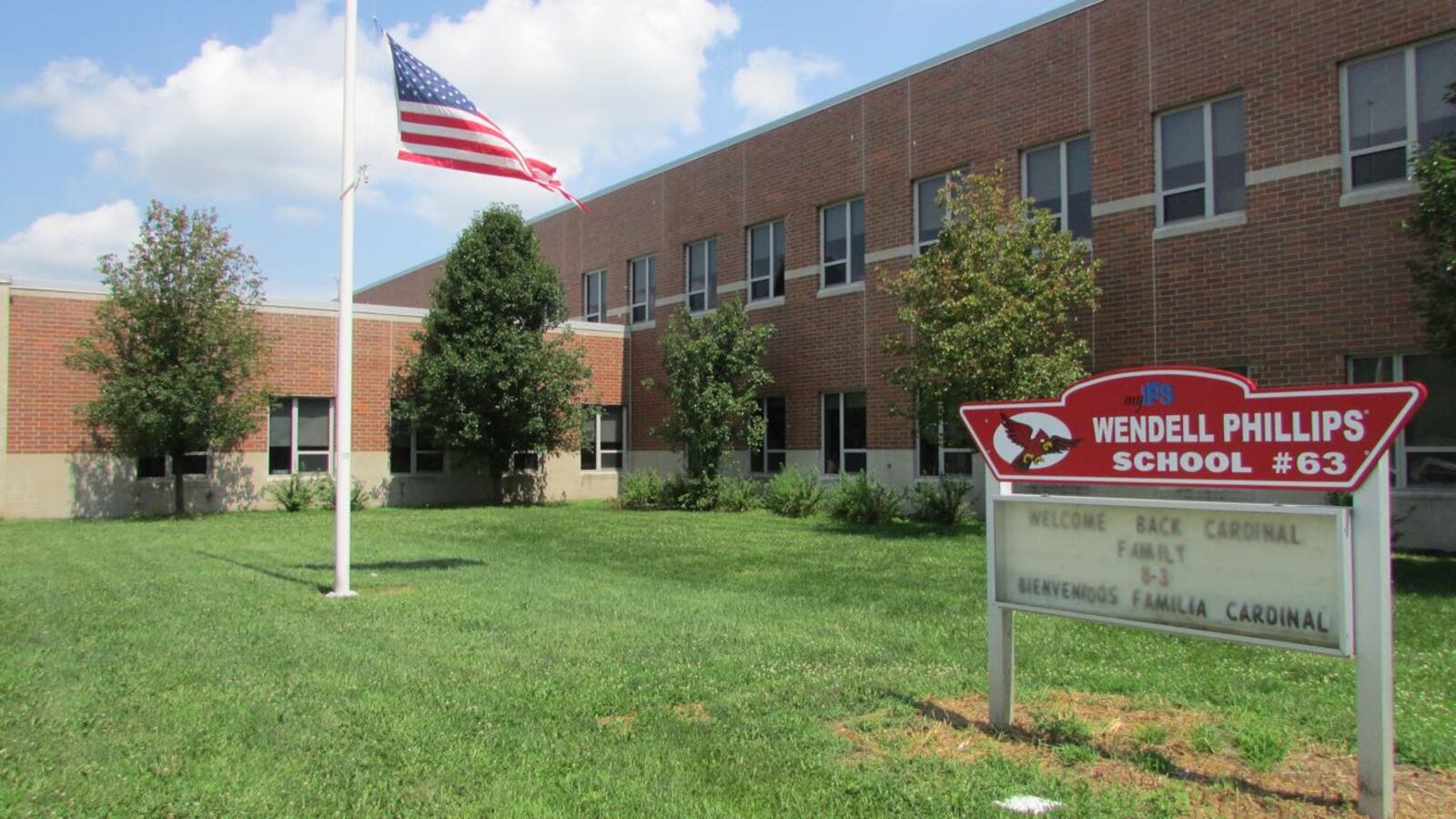Leaders of Indianapolis’ largest school district face a choice: hand management of a struggling school to an outside operator with a lackluster track record or face the threat of losing the school to state takeover.
A neighborhood school in Haughville, School 63 got its fifth F from the state last year. If the school gets another failing grade, it could face state intervention — including the possibility that the state board could sever the school from Indianapolis Public Schools and bring in its own outside manager to run it.
Before that happens, the district is considering re-starting School 63, also known as Wendell Phillips, as an innovation school. If the plan is approved, the school would still be considered part of the district, but it would be managed by Matchbook Learning, a charter operator with a spotty track record. As an innovation school, teachers would work directly for Matchbook and they would not be able to join the district union.
This is the second year that the district has considered restarting School 63. Superintendent Lewis Ferebee previously recommended keeping the principal and teachers because the school had seen some gains on tests, but after another failing grade from the state, the administration now says time is running out for the district to take action.
At a board meeting on Thursday, Matchbook leaders won praise for their proposal and for engaging the community. But one member, Elizabeth Gore, had clear reservations.
Gore said that she would like to see other potential partners, but the administration said that Matchbook is the only group that submitted a proposal for re-starting School 63. That puts extra pressure on the board to support the plan in order to avoid the threat of takeover, which looms large even though it’s been more than five years since the state took control of four schools in the district.
“At this point, is there any evidence that the state would take over if there’s no other option?” Gore asked.
Ferebee said that the district has avoided takeover in recent years because it has been aggressive with its own interventions. Because the district has already asked the state for additional time for School 63 to improve, he said, “I would assume that there is an expectation that we have a more bold step forward.”
Matchbook uses a blended learning approach that combines software and traditional teaching. It has attempted turnarounds at several other schools, but its record is mixed, and the last two charter schools it operated were shut down in 2017. The school’s founder, Sajan George, attributed those decisions to local politics and low test scores under prior operators rather than Matchbook’s performance. George said his group is looking for the opportunity to restart a school where the organization will be able to remain long-term.
“Our heart and our core competence has always been to those existing schools that are poor performing,” George said, “because the need is so great.”

